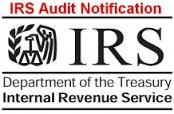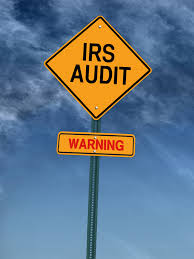In this week’s Monday Muni Minutes: A Special District Fights Taxable PAB Ruling from IRS, Small Issuer Cap Triples if Budget Passes, FREE Webinars: MCDC and IRS Plan for 2015…and The Highway to Heaven or Road to No Where?
CURRENT EVENTS
What’s New at the IRS…
IRS: Village Center CDD Bonds Are Taxable PABs (B Buyer, January 23, 2015)
After a controversial technical advice memorandum and a several-years-long audit, the tax exempt fate of $200 million worth of bonds issued by the Village Center Community Development District in Florida between 1998 in 2004 still hangs in the balance.
Under federal tax law, bonds are private activity bonds if:
- More than 10% of the proceeds are for private business use and
- More than 10% of the debt service is paid by, or secured from, private parties
PABs are deemed taxable unless they are used for certain “qualified” purposes, which do not include recreational facilities.
The CDD is a commercial district that includes part of a retirement community. It also operates utilities, recreational facilities and other services for the development.
In its first proposed taxable bond finding in January 2009, the IRS stated that the CDD bonds are taxable private activity bonds.
The IRS has stated that the bonds are taxable for the following reasons:
- The CDD is not a political subdivision, therefore cannot issue tax exempt bonds
- Appraisals of the bond finance property fail to support the price the issuer paid to the developer for the facilities
In its most recent ruling, the IRS states:
- The developer retained control over the property in excess of 10%, making it private use

- The facilities have private business use because the developer maintained special legal entitlement to the facilities and retained the exclusive right to sell land and tell future residents they could use the bond financed property
- The developer kept special economic benefits to the bond financed property by maintaining the right to receive income paid for the use of the facilities
“The developer is using the bond financed facilities when, in its private business activities, it contracts with new homeowners for amenity fees that grants the use of bond financed facilities and services,” the IRS said.
The District does not believe the bonds are private activity bonds.
Perry Israel, a Sacramento, CA lawyer representing the CDD, indicated the district expected to receive the recent notice and has until March 2 to respond to it. “It’s another step in the process,” he said.
Another interesting twist in this case involves the private payment or security test.
According to the IRS, the amenity fees are considered private payments because they are made to use facilities that are used in the trade or business of a private party – the developer.
These fees are also the main source of payment for the bonds. Additionally, the districts’ gross revenues, which consist mainly of these amenity fees, were listed as security for the bonds.
Kim Betterton, a partner at Ballard Spahr in Baltimore, said there really needs to be guidance relating to special districts, since they finance a lot of infrastructure in some states, such as Florida, Colorado and California.
[Editor’s Note: This is a fascinating article. It highlights the complexities and post issuance compliance due diligence challenges (and liability) which can haunt special districts. Many are small, “special purpose” entities whose boards do not have tremendous experience in the restrictions, nuances and obligations of municipal law. As an example, in Colorado alone, there are more than 2,000 special districts. I hope board members of special districts are reading this article too…and seeking assistance, if needed!]
While over at Treasury & Budget…
Obama to Propose Raising Issuer Cap for Bank Qualifieds (B Buyer, January 20, 2015)
As part of his fiscal 2016 budget, President Obama is expected to propose a permanent increase in the qualified small issuer cap for Bank qualified bonds… tripling it from $10 million to $30 million per year .
His proposal would also allow banks investing in these securities to write off 80% of their cost of buying and holding these bonds as long as such holdings do not exceed 2% of their total assets.
The president also plans to include the new Qualified Public Infrastructure Bonds or QPIBs, which would be a hybrid between governmental bonds and private activity bonds, but would not be subject to issuance caps or the AMT.
Another proposal includes modifying the 2% “de minimis” rules for financial institutions to include banks. One final addition is the expansion of little-used qualified public education facility bonds, by rolling QPEFs into the PAB cap.
Municipal market professionals are voicing support for these measures, saying it would strengthen demand for municipal bonds while stimulating investment in America’s critical transportation and utility infrastructure needs.
[Editor’s Note: I think there is strong support for taking steps to improve our crumbling infrastructure, however, the frequent references to ARRA still invokes “stimulus” in the minds of many and is likely to cause angst with politicians and taxpayers alike…we will just have to wait and see how this shakes out. ]
Senator, State & Local Groups, Criticize Online Sales Tax Proposal (B Buyer, Jan. 22, 2015)
What do the internet sales tax and the tax exemption for municipal bonds have in common?
Good question! They are both two of the top priorities for the US Conference of Mayors for 2015.
Collecting online sales tax, otherwise known as the Marketplace Fairness Act, has been a hot potato for many years.
Currently, states can only require sales tax to be collected for online purchases if the seller has a physical presence in that state. The MFA, if enacted, would require online sales taxes to be collected in all but five states that do not currently have a sales tax.
Under a new proposal by Representative Bob Goodlatte R-VA, the collection of internet sales tax would be based on the shipper’s location rather than the purchasers.
This proposal would be a totally radical change from what people are accustomed to.
Goodlatte’s opponents say his version will simply create more confusion and possibly force some purchasers to pay higher sales tax as a result. Many states are not set up to deal with such a clearinghouse method of allocating tax revenues.
The US Conference of Mayors will continue to press this issue as online sales tax revenue could be used to back bonds which could be used to help communities deal with their unfunded pension liabilities.
[Editor’s Note: Given the prolonged revenue loss impacts of the economic recovery on local and state governments, combined with escalating unfunded pension costs to shore up promised, but unrealized actual earnings for many retirees, shielding untapped revenue sources such as online sales tax may be short-lived.]
OUT & ABOUT
Two FREE Webinars Next Week!
As shared last week in a special e-mail:
Audio webcast:
From: IRS Tax Exempt Bond (TEB) Division
Feb 5th at 2:00PM ET / 11:00 AM PST
The webcast will cover the market segment program for audits, the voluntary closing agreement program and new processes for it, customer satisfaction surveys, compliance checks and surveys and other activities.
Register for the webcast at
http://www.visualwebcaster.com/IRS/101226/reg.asp?id=101226
(Note: This is the same day as Orrick’s Bond Buyer MCDC webinar…see below)
Title: Continuing Disclosure after MCDC
Hosted by: Bondbuyer Webinars,
Date: February 5, 2015, 12:00PM ET / 9:00AM PST
Signup: Continuing Disclosure after MCDC
The SEC’s Municipal Continuing Disclose Compliance Initiative has shone a spotlight on continuing disclosure. It signals aggressive enforcement by the SEC and raises the stakes for compliance by Issuers, Borrowers and Underwriters.
Besides being great information….They are both FREE!!
Conferences in early 2015:
The Bond Buyer’s National Outlook 2015 Conference, January 27, 2015 (This week!)
Metropolitan Club, New York, NY
The Bond Buyer’s Texas Public Finance Conference, February 9-11, 2015
Omni Barton Creek Resort & Spa, Austin, TX
The Bond Buyer and BDA’s National Municipal Bond Summit March 1-3, 2015
The Westin Beach Resort & Spa, Fort Lauderdale, FL
Editor Commentary: Are We on the Highway to Heaven or the Road to No Where?
What a treat…gas is finally back to 2 bucks a gallon!
A small smile crosses my face as I put the nozzle back in the pump, noting that my bill was only $23 – a far cry from the nearly $50 I was used to paying.
Time to hit those smooth highways!
Sure felt like a tiny little slice of heaven to me…
For many Americans, it’s been really painful the last few years, with less hours being worked and more money going into the tank.
Finally, things are looking up…
Or are they?
I am not sure how much attention we have all been paying to the discussion of crumbling roads and bridges…or the need to find a long term revenue solution to the ailing Highway Trust Fund (HTF), which has been receiving life-saving infusions from the general fund since 2008…to the tune of nearly $60 billion.
Add to that the $19 billion which the HTF received from the Moving Ahead for Progress in the 21st Century or MAP-21 Program, a $105 billion surface mass transit dedicated transportation bill passed in 2012. However, MAP-21 expired September 30, 2014.
On Friday, bipartisan lawmakers re-introduced a bill – their Partnership to Build America Act, H.R. 413, which would establish the American Infrastructure Fund, or AIF.
The AIF, would be a $50 billion trust bank, funded by 50-year bonds issued at 1%, and could provide credit support to state and local governments for transportation, water, and school projects.
The AIF also promotes public-private partnerships. To qualify, 35% of the infrastructure projects must have at least 10% of their financing through private debt or equity to be eligible for funding.
This bill is virtually identical to what was introduced in early 2014…as a result of the CBO’s dire predictions that the Highway Trust Fund would be broke by the end of fiscal year 2014 without ongoing infusions from the general fund or additional sources of revenue.
The HTF’s revenues come from the federal tax gasoline tax of 18.4 cents per gallon and 24.4 cents per gallon tax on diesel fuel. Public transit receives 1 cent of the tax with the remainder dedicated for highway funding.
Bonds called Garvees, are grant anticipation revenue vehicles issued by states and backed by the money they expect to receive from the federal trust fund. With the HTF in its current condition, state payments will likely be delayed or reduced – by as much as 20%.
The recession, declining employment and reduced gasoline taxes due to more fuel efficient cars has been cited as primary reasons for the HTF’s budget woes.
To make matters worse, the I-5 Skagit River Bridge Collapse in WA last year brought the deteriorating condition of key roads and bridges screaming to the front of everyone’s minds. Based on engineering estimates, 1 in 4 bridges is now in need of repair.
And we have a transportation fund shortfall…hmmm…not good.
Mike Fitzpatrick, R-PA, one of the co-sponsors of H.R. 413, stated, “This bill provides an innovative way to finance hundreds of billions of dollars in infrastructure projects with no new appropriated costs,”
Rep. John K. Delaney, D – Maryland, the other co-sponsor, shared that the AIF would be funded by providing multinational corporations the opportunity to repatriate overseas earnings tax-free on a one time basis (via reverse Dutch auction) in exchange for investing in the bonds.
It should be noted that, although the AIF is expected to bring in $50 billion for infrastructure, that amount is projected to only cover about a third of the entire $132 billion shortfall…
So…there is more work to be done.
Other options are being explored, including a hike in the federal gasoline tax. Lawmakers are also watching the proposed Oregon “vehicle-miles-driven tax”, but sources in Washington doubt that there will be much national support for such a “user” tax.
Dave Wise, director of physical infrastructure issues at the Government Accountability Office said, “a sustainable solution to funding surface transportation is based on balancing revenues to, and spending from, the Highway Trust Fund,” he said. “Ultimately, major changes in transportation revenues or spending or both will be needed to bring the two into balance.”
So…while I was grumbling about $4+ a gallon gas…in my 30+ MPG car, the roads I was traveling on and the bridges I was driving over were getting worse.
Now, I am not much of an engineer…
BUT…as a pretty astute accountant, I can easily deduce that continued deficits will only lead to continued deterioration…
Eventually this will lead to our roads – and consequently us – going nowhere.
What do you think??
In closing, last week we held the second of three in our on-line webinar for PIC Essentials: The Audit-Proven Blueprint where we got our hands deep into bond accounting, including extensive, yet functional project pivot tables, how to calculate and allocate interest expense and some clever alternatives to vouch project costs. These come in particularly handy when you can’t find invoices or if you are recreating your files after the state records retention period has expired.
PIC Essentials: The Audit-Proven Blueprint where we got our hands deep into bond accounting, including extensive, yet functional project pivot tables, how to calculate and allocate interest expense and some clever alternatives to vouch project costs. These come in particularly handy when you can’t find invoices or if you are recreating your files after the state records retention period has expired.
Members are looking forward to this week’s session, where we’ll dive into the hot topic private business use and a closer look at IRS Notice 2014-67. If you need or want more help in any of these areas, just let us know. We are already thinking about more sessions, based on suggestions and questions from members.
We hope you found this week’s edition of the Monday Muni Minutes valuable and informative.
As always, your comments are welcome…
To your compliance success,
Debbie
The greatest compliment you can pay us is to share this newsletter with your issuer friends….
P.S. Want a one-click way to get faster information? If you are on LinkedIn, you can get access to breaking muni news articles as well as interesting compliance tips and resources, posted by us during the week. Join our private Group Page, and follow us on our Company Page.


